What can happen when the focus of student work begins with a place in their community?
When a student gains deep knowledge of a place there’s a shift. It’s not just that they may come to feel they belong in that space, but that the space somehow belongs to them. That’s my vacant lot, my spot in the woods, my corner of the school. What does it take to give students that sense of mastery? Where would you start? Come share your ideas and experiences for a session focused on the ways we might engage students around particular places in their neighborhood, their lives, or the broader community.
As always, you’ll be joined by peers and collaborators from K-12 higher education, industry, and the nonprofit community. If you work with or know of a student (7th grade and above) who would like to join the discussion, please extend the invitation.
Agenda
| 5:30 to 6:00 pm | Grab something to eat, meet some interesting, passionate people |
| 6:00 to 6:15 pm | Welcome and introductions |
| 6:15 to 8:00 pm | Let’s talk through some ideas |
| 8:00 to 8:30 pm | Wrap up and next steps |
Food and non-alcoholic beverages will be provided. There is no charge for participation but space is limited!
Featured Participants
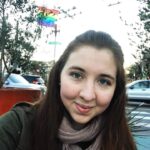 Lauren coordinates the MKE Roots Project through Marquette’s Center for Urban Research, Teaching and Outreach. In this role, she supports the creation of an online ecosystem which used to bring local histories of social change movements to Milwaukee K-12 classrooms. Milwaukee Roots is a place-based, inquiry-centered approach to teaching the history and civic engagement of Milwaukee’s communities—especially its communities of color, indigenous nations, and other historically marginalized communities. Through the development and implementation of contextually meaningful history and civics instruction in area classrooms, MKE Roots aims to transform how Milwaukee’s students see themselves within the civic landscape of our city: as change agents, community contributors, and citizens who matter.
Lauren coordinates the MKE Roots Project through Marquette’s Center for Urban Research, Teaching and Outreach. In this role, she supports the creation of an online ecosystem which used to bring local histories of social change movements to Milwaukee K-12 classrooms. Milwaukee Roots is a place-based, inquiry-centered approach to teaching the history and civic engagement of Milwaukee’s communities—especially its communities of color, indigenous nations, and other historically marginalized communities. Through the development and implementation of contextually meaningful history and civics instruction in area classrooms, MKE Roots aims to transform how Milwaukee’s students see themselves within the civic landscape of our city: as change agents, community contributors, and citizens who matter.
Lauren has an MA in Oral History from Columbia University and her personal research centers on queer Midwest spaces and communities. Lauren is passionate about using digital media and art to share underrepresented stories. Past projects include: Fifty Years of Pride at Why Not III, The Facing Project: Facing Intolerance, Antioch University’s The Seed Field Podcast, and Real Stories MKE. Lauren currently serves on the board of The Facing Project and is producing Out-fm’s upcoming podcast (2024).
Joseph Kaltenberg — MKE Parks Manager, City of Milwaukee – Department of Public Works
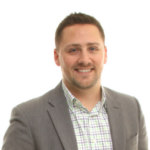 Joseph began working for the City of Milwaukee in 2015, coordinating the MKE Plays initiative, which re-established parks as a priority for local government and transformed the city’s most
Joseph began working for the City of Milwaukee in 2015, coordinating the MKE Plays initiative, which re-established parks as a priority for local government and transformed the city’s most
underutilized parks into enriching play environments. Since then, he has secured more than $9 million in public and private funding to stabilize park operations and create a new organizational structure within DPW. This entity, re-branded externally as MKE Parks, is responsible for the sustainable management of city recreational assets. Joseph has a B.S. in Exercise Science from the University of Wisconsin – La Crosse, and a M.A. in Education Policy from Marquette University. He served in Peace Corps from 2011-2013 in rural Zambia where he worked on numerous grassroots community development projects.
Arijit Sen — Associate Professor of History and Urban Studies, UW Milwaukee
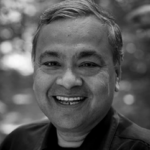
Arijit is an architect and public historian who teaches, writes, and researches urban cultural landscapes, immigrant histories, and public humanities at the University of Wisconsin-Milwaukee. His scholarship focuses on South Asian immigrant communities, urban history, and fieldwork methods, with a particular emphasis on interpreting cities from the ground up by amplifying the voices and histories of communities often overlooked in official narratives.
Since 2012, Sen has directed the Buildings-Landscapes-Cultures Field School in Milwaukee, where university and community partners collaborate to interpret the city through storytelling, heritage preservation, and civic engagement. He sered as the founding co-director (2021-2023) of “Community Powered,” a statewide public humanities initiative by Wisconsin Humanities aimed at building resilience in Wisconsin communities. Additionally, Sen is working with the Newark-based Humanities Action Lab on Climates of Injustice, a national traveling exhibit focused on environmental justice.
His work has been published in journals such as Winterthur Portfolio, JSAH, Buildings & Landscapes, Future Anterior, South Asian History and Culture, and Food & Foodways. He also co-edited Landscapes of Mobility: Culture, Politics and Placemaking (with Jennifer Johung) and Making Place: Space and Embodiment in the City (with Lisa Silverman).
In 2022, Arijit was inducted as a fellow of the Society of Architectural Historians. He currently serves as an Associate Professor of History and Urban Studies, and co-director of the Public History program in the Department of History at the University of Wisconsin-Milwaukee. Previously, he was a faculty member in the Department of Architecture at UWM.
Angela Vickio — Wisconsin Department of Natural Resources
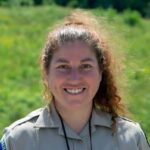 Angela is the superintendent of the Milwaukee State Parks Work Unit for the Wisconsin Department of Natural Resources. In her current position, she oversees Havenwoods State Forest, Lakeshore State Park and Hank Aaron State Trail. Primarily stationed out of Havenwoods, she has a background in conservation and environmental science, biophysics, and secondary science education. Prior to her current role, she was the park manager for Lakeshore State Park and Hank Aaron State Trail, and a teacher at Milwaukee High School of the Arts. She takes pride in ensuring quality recreational, community and educational offerings, along with supporting native habitat restoration and green career initiatives in Milwaukee.
Angela is the superintendent of the Milwaukee State Parks Work Unit for the Wisconsin Department of Natural Resources. In her current position, she oversees Havenwoods State Forest, Lakeshore State Park and Hank Aaron State Trail. Primarily stationed out of Havenwoods, she has a background in conservation and environmental science, biophysics, and secondary science education. Prior to her current role, she was the park manager for Lakeshore State Park and Hank Aaron State Trail, and a teacher at Milwaukee High School of the Arts. She takes pride in ensuring quality recreational, community and educational offerings, along with supporting native habitat restoration and green career initiatives in Milwaukee.

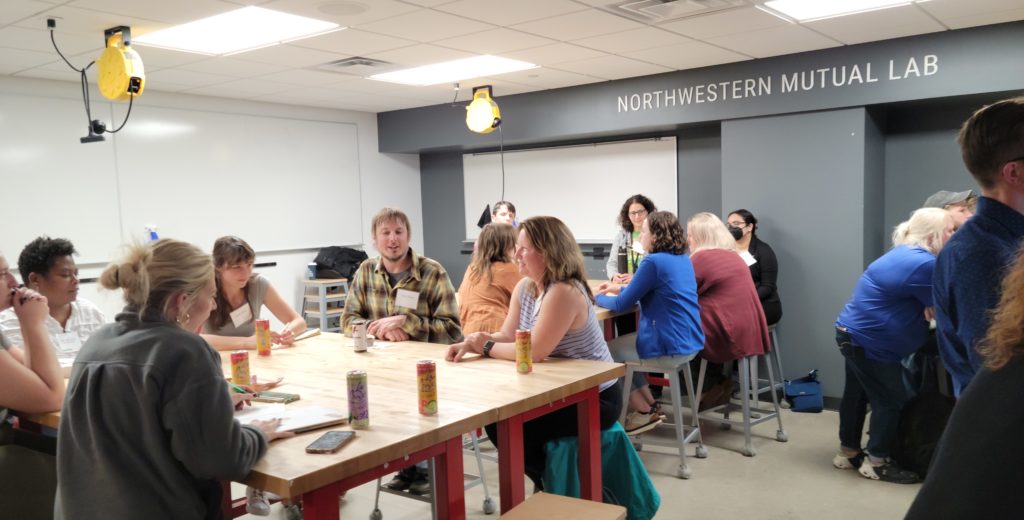
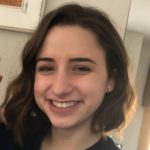 Jessica is a volunteer coordinator who leads educator engagement for the Snapshot Wisconsin project.
Jessica is a volunteer coordinator who leads educator engagement for the Snapshot Wisconsin project. 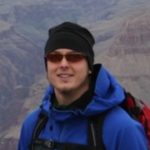 Pete works out of the Upper Midwest Water Science Center in Madison, Wisconsin, bringing his expertise in microplastics, waterborne pathogens, water quality, aquatic ecosystems, water resources, and nutrient biogeochemistry to bear on issues raging from the spatial distribution of microplastics, to using optical properties to predict and estimate wastewater contamination, to the prioritization of pharmaceutical contaminants. He is particularly interested in enhancing our understanding of the sources of microplastics to aquatic ecosystems and how to efficiently and accurately quantify this diverse group of contaminants.
Pete works out of the Upper Midwest Water Science Center in Madison, Wisconsin, bringing his expertise in microplastics, waterborne pathogens, water quality, aquatic ecosystems, water resources, and nutrient biogeochemistry to bear on issues raging from the spatial distribution of microplastics, to using optical properties to predict and estimate wastewater contamination, to the prioritization of pharmaceutical contaminants. He is particularly interested in enhancing our understanding of the sources of microplastics to aquatic ecosystems and how to efficiently and accurately quantify this diverse group of contaminants.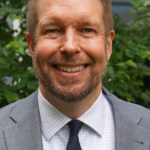 Dr. Simenz has spent 20 years in community engaged research on wellness, social determinants of health, physical activity, and performance. Research, policy, and advocacy work has developed partnerships amongst a diverse group of populations and is focused on policy and systems change in PA and access to wellness for marginalized populations. Our research team has developed and written wellness policy for the United Neighborhood Centers of Milwaukee (UNCOM), Milwaukee Public Schools, and the Boys & Girls Clubs of Greater Milwaukee. He is actively engaged in promotion of equity in housing, food insecurity and healthcare access as a faculty member in the MCW Doctor of Public Health Program, as a board member of StreetLife Communities supporting those experiencing homelessness, and as a member of the North Shore Board of Health.
Dr. Simenz has spent 20 years in community engaged research on wellness, social determinants of health, physical activity, and performance. Research, policy, and advocacy work has developed partnerships amongst a diverse group of populations and is focused on policy and systems change in PA and access to wellness for marginalized populations. Our research team has developed and written wellness policy for the United Neighborhood Centers of Milwaukee (UNCOM), Milwaukee Public Schools, and the Boys & Girls Clubs of Greater Milwaukee. He is actively engaged in promotion of equity in housing, food insecurity and healthcare access as a faculty member in the MCW Doctor of Public Health Program, as a board member of StreetLife Communities supporting those experiencing homelessness, and as a member of the North Shore Board of Health. Bernie leads the College’s science education and community engagement programs, including The
Bernie leads the College’s science education and community engagement programs, including The 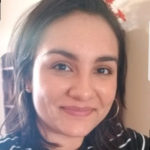 Adriana is an MPS graduate and educator. As a classroom teacher, she partnered with the Museum’s educators to create curriculum based on exhibits and coordinate field trips. She strongly believes in the unique ability museums have to provide educational experiences that reinforce the learning happening in classrooms, and that museums should be a resource for formal educators in K-12+ and engage curiosity and excitement in learners of all ages. In her new role with the Museum, she looks to build out those opportunities.
Adriana is an MPS graduate and educator. As a classroom teacher, she partnered with the Museum’s educators to create curriculum based on exhibits and coordinate field trips. She strongly believes in the unique ability museums have to provide educational experiences that reinforce the learning happening in classrooms, and that museums should be a resource for formal educators in K-12+ and engage curiosity and excitement in learners of all ages. In her new role with the Museum, she looks to build out those opportunities.